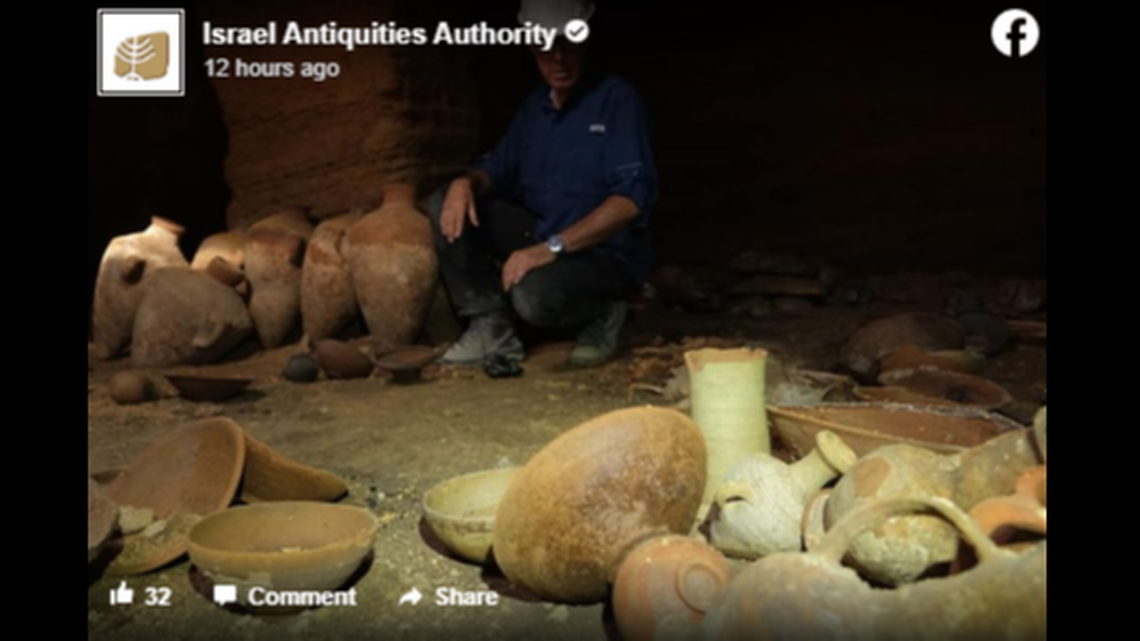Construction crews working in Israel’s Palmachim Beach National Park found a cave from the time of King Rameses II and unveiled “what looks like an ‘Indiana Jones’ film set,” according to the Israel Antiquities Authority.
The discovery was made Sept. 14, when digging equipment created a hole that opened up a view into a mysterious room, officials said. Palmachim Beach National Park is located south of Tel Aviv, on the Mediterranean coast.
“Archaeologists … descended a ladder into the astonishing space that appeared to be frozen in time,” the authority reported in a Facebook post.
“The carved cave was square in shape with a central buttress. Several dozen intact pottery and bronze artifacts were placed in the cave, exactly as they were arranged at the burial ceremony, about 3,300 years ago. These vessels were funeral offerings that accompanied the deceased in the belief that they would serve the dead in the afterlife.”
Officials did not report whether there were bones or other human remains among the artifacts, including pottery and bronze items.
The cave dates back to the era of King Rameses II, “the pharaoh associated with the Biblical Exodus from Egypt,” officials said.
“The fact that the cave was sealed … allows us to use the modern scientific methods available today, to extract a lot of information from the artifacts … that is not visible to the naked eye,” said Eli Yannai, a Bronze Age expert with the Israel Antiquities Authority.
“The cave can provide a complete picture of late Bronze Age burial customs.”
Much of the pottery found was intact, including storage jars and pedestal chalices, officials said. Some containers had been brought from even Lebanon and Cyprus and may contain “expensive goods,” officials said.
Immediately after the discovery, guards were placed at the site, but “a few items were looted from the cave before it was sealed,” officials said. An investigation into the theft is underway.
“In a few days we will formulate a plan to carry out the research and protection of this unique site, which is a celebration for the archaeological world and for the ancient history of the Land of Israel,” the authority reports.
Palmahim National Park includes “the remains of the ancient port city of Yavne-Yam from the Middle Canaanite period,” according to the park’s website. Previous excavations in the park have uncovered “ancient waterworks and agricultural equipment,” officials said.
‘Antique’ head sculpture turns out to be 3,000-year-old Egyptian artifact, US agents say
Tourist on Little Bighorn battlefield finds piece of history buried in earth, says park
Strange seashell found at historic Boston site belonged to enslaved person, experts say

